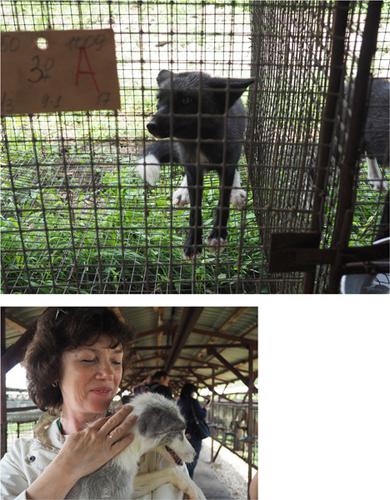当前位置:
X-MOL 学术
›
Evol. Dev.
›
论文详情
Our official English website, www.x-mol.net, welcomes your
feedback! (Note: you will need to create a separate account there.)
A striking example of developmental bias in an evolutionary process: The "domestication syndrome".
Evolution and Development ( IF 2.6 ) Pub Date : 2019-09-23 , DOI: 10.1111/ede.12319 Adam S Wilkins 1
Evolution and Development ( IF 2.6 ) Pub Date : 2019-09-23 , DOI: 10.1111/ede.12319 Adam S Wilkins 1
Affiliation

|
The question of whether “developmental bias” can influence evolution is still controversial, despite much circumstantial evidence and a good theoretical argument. Here, I will argue that the domestication of mammalian species, which took place independently more than two dozen times, provides a particularly convincing example of developmental bias in evolution. The singular finding that underlies this claim is the repeated occurrence in domesticated mammals of a set of distinctive traits, none of which were deliberately selected. This phenomenon has been termed “the domestication syndrome”. In this article, I will: (a) describe the properties of the domestication syndrome; (b) show how it can be explained in terms of the operation of a specific genetic regulatory network, that which governs neural crest cell development; and (c) discuss Dmitry Belyaev's idea of “destabilizing selection,” which holds that selecting for a new behavior often entails neuroendocrine alterations that alter many aspects of development. Finally, I will argue for the potential general significance of such destabilizing selection, in combination with developmental bias, in animal evolution.
中文翻译:

进化过程中发展偏见的一个突出例子:“驯养综合症”。
尽管有大量的间接证据和良好的理论论据,但“发展偏见”是否会影响进化的问题仍然存在争议。在这里,我将争辩说,哺乳动物物种的驯化独立发生了两次以上,这提供了进化中发展偏见的一个特别令人信服的例子。提出这一主张的唯一发现是在驯养的哺乳动物中反复出现了一组独特的特征,没有一个是有意选择的。这种现象被称为“驯化综合症”。在本文中,我将:(a)描述驯化综合征的特征;(b)展示如何用特定的遗传调控网络的运作来解释它,它控制着神经c细胞的发育;(c)讨论了德米特里·别利亚耶夫(Dmitry Belyaev)的“破坏稳定选择”的思想,该思想认为,为一种新的行为进行选择通常需要神经内分泌改变,从而改变发育的许多方面。最后,我将论证这种不稳定选择与发展偏见一起在动物进化中的潜在一般意义。
更新日期:2019-09-23
中文翻译:

进化过程中发展偏见的一个突出例子:“驯养综合症”。
尽管有大量的间接证据和良好的理论论据,但“发展偏见”是否会影响进化的问题仍然存在争议。在这里,我将争辩说,哺乳动物物种的驯化独立发生了两次以上,这提供了进化中发展偏见的一个特别令人信服的例子。提出这一主张的唯一发现是在驯养的哺乳动物中反复出现了一组独特的特征,没有一个是有意选择的。这种现象被称为“驯化综合症”。在本文中,我将:(a)描述驯化综合征的特征;(b)展示如何用特定的遗传调控网络的运作来解释它,它控制着神经c细胞的发育;(c)讨论了德米特里·别利亚耶夫(Dmitry Belyaev)的“破坏稳定选择”的思想,该思想认为,为一种新的行为进行选择通常需要神经内分泌改变,从而改变发育的许多方面。最后,我将论证这种不稳定选择与发展偏见一起在动物进化中的潜在一般意义。











































 京公网安备 11010802027423号
京公网安备 11010802027423号